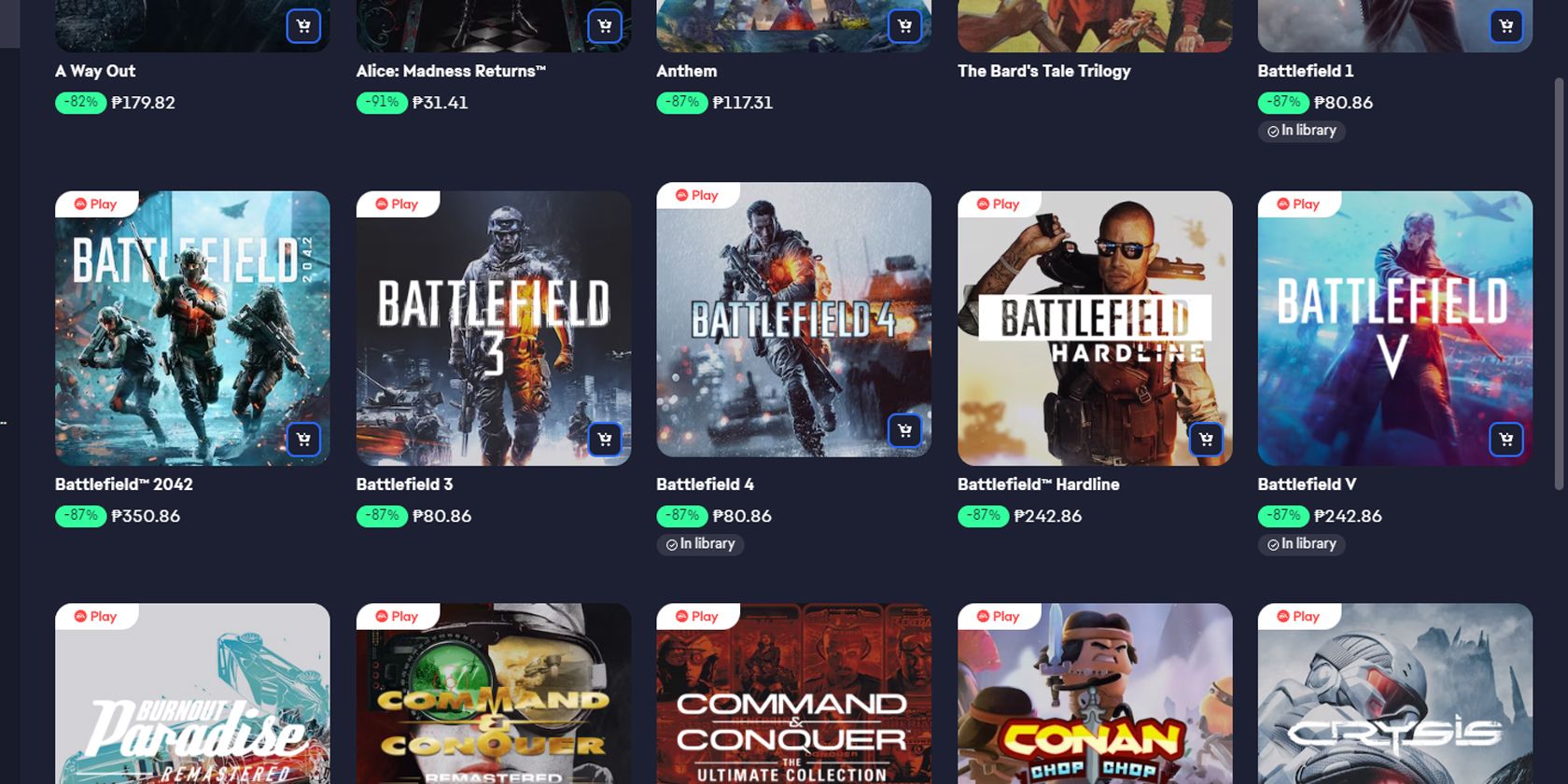
The True Cost of Games: Why Owning Beats Pay-Per-Play

The True Cost of Games: Why Owning Beats Pay-Per-Play
Quick Links
Key Takeaways
- 95% of games sold in 2023 were digital, indicating a shift toward an all-digital future.
- Subscriptions offer convenience, but owning games provides control over access and content.
- Despite benefits, game ownership allows for collection, resale, sharing, and control over game versions.
The biggest draw of game subscription services is that you can access a huge catalog of games for a monthly fee. However, that comes with one major drawback: you give up the benefits of game ownership. Here’s a look at why game subscription services can’t replace the benefits of owning your games.
Games Are Heading Towards an All-Digital Future
According to a report byGamesIndustry.biz , 95% of games sold in 2023 were digital. We’re even seeing some games, such as Alan Wake 2 and Hellblade 2, release digital-only versions with no physical copies. Furthermore, legendary physical retailers like GameStop are closing more stores each year.
These are just a few signs, but with the decline of physical games, game companies have an incentive to push for an all-digital future. Not only does this raiseconcerns about game preservation , but it also means players will have to purchase digital copies or subscribe to a service to play games. This throws game ownership out the window.
In fact, Phillipe Tremblay, Ubisoft’s director of subscriptions, has stated that players should get comfortable not owning their games, according to an article byGamesIndustry.biz . Not long after that, Blizzard updated itsEULA in March 2024, telling users that they don’t own their games.
Furthermore, with Sony and Xbox adding more games and perks toPS Plus and Game Pass , subscriptions are becoming more attractive. Even shifts in consumer behavior show that these gaming subscriptions, including Apple Arcade, are gradually outpacing game purchases each year, according toStatista .
Why Subscriptions Can’t Beat Game Ownership

As game subscriptions keep trending upward and game companies embrace them, the benefits of complete game ownership are becoming more apparent.
When we talk about game ownership here, we’re referring to physical games. Whilepurchasing digital games gives you more control over games than subscriptions, you can run into similar problems.
Here are several reasons game ownership is king over subscriptions.
1. You Have Complete Access

Mohsen Vaziri/Shutterstock
With game subscriptions, you will have access to the games if you have an active subscription. This is different from a game you own, where you pay once and can access it today, tomorrow, or in five years (provided you still have the disc).
Furthermore, subscription services constantly shuffle their content, meaning a game may not stay on the service forever. Games come and go depending on the licensing agreements (or disagreements) with publishers. A game you purchased is yours forever and you never have to worry about any changes to the content or terms of service.
2. Access Doesn’t Depend on an Internet Connection
If it’s a subscription service like PS Plus or Game Pass, you need a good internet connection to download the games for offline play. If it’s a streaming service like GeForce Now or PlayStation Now, you need a stable internet connection with a minimum down speed of 3-6 Mbps.
If you’re in an area with shoddy internet, it can make it hard to download or stream the games. And if there’s no internet, you won’t be able to access them at all. However, large Day 1 patches do make this more complicated when it comes to physical games, as they require an online connection to download.
3. You Can Build a Collection
Physical games are usually worth collecting due to how satisfying it can be to see them displayed on a shelf. Furthermore, game companies might release various physical editions that come with things like a steelbook case, box art, art book, manual, map, action figures, and other collectibles. You can’t get any of this from a subscription service.
4. You Can Sell the Games Later
If you’re not a collector, you can easily sell or trade in the games once you’re done with them. This can help you recover some of the costs of purchasing the game, which you can then use to purchase another game. If you hold on to the games long enough, there’s a chance (although small) that they will be worth substantially more in the future.
5. You Can Share the Games with Others

Chay_Tee/Shutterstock
If someone wants to play games on the subscription service you paid for, you can share your account details with them. However, that could be against the terms of service, and it opens your account to potential security risks. The only way to freely share games is if you own a physical copy that you can give someone else to play.
Subscription services do have their benefits, though. For example, they could help you save on game purchases in the long run. Also, game subscriptions usually give you full access to the game’s DLC and expansions. Furthermore, for cloud games, you’re guaranteed to always have access to the updated version.
These are just some of the benefits of subscriptions. However, we don’t think it’s worth giving up complete ownership since even those subscriptions and internet costs can rack up over time.
Most importantly, and we can’t stress this enough, you can’t do anything you want with them and can lose access when those games are removed from digital storefronts or subscription services.
Also read:
- [New] The Art of Piecing Together Digital Images
- [Updated] In 2024, The Ultimate Guide to the Most Effective PC Screen Capture Apps
- 2024 Approved Next-Gen Experience VR in Leisure and Media
- In 2024, How to Bypass Android Lock Screen Using Emergency Call On Nubia Red Magic 8S Pro+?
- Is Formatting Required Prior to Cloning a Fresh Solid-State Drive? Expert Insights
- Navigating Through Generative AI's Search Mechanisms
- The Most Trusted 8 Sources of Gaming News & Critiques
- The Ultimate Connection Guide for Epic & Steam Accounts
- Unleashing Creativity: Using Tablets in Games
- Why I'm Insisting on OLED - A Gamer’s Perspective.
- Title: The True Cost of Games: Why Owning Beats Pay-Per-Play
- Author: William
- Created at : 2024-12-11 11:24:54
- Updated at : 2024-12-17 02:52:32
- Link: https://games-able.techidaily.com/the-true-cost-of-games-why-owning-beats-pay-per-play/
- License: This work is licensed under CC BY-NC-SA 4.0.